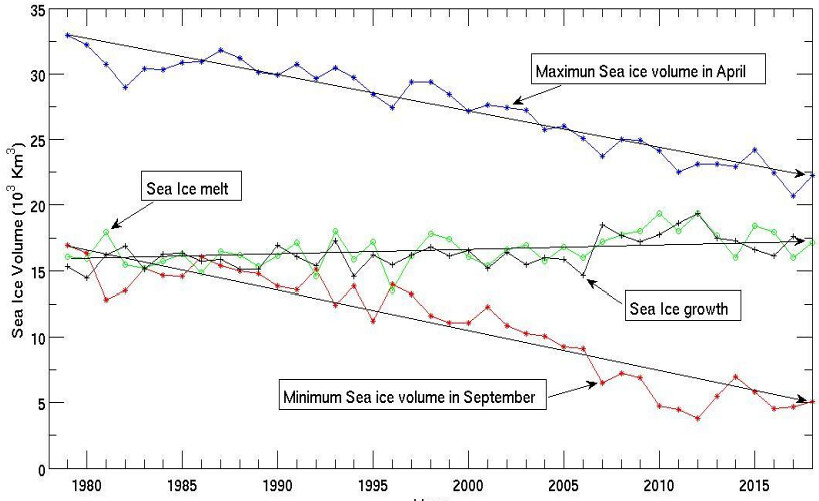 Via complete and utter Twatter, apparently an amicus brief for the United States Court Of Appeals FOR THE NINTH CIRCUIT:
Via complete and utter Twatter, apparently an amicus brief for the United States Court Of Appeals FOR THE NINTH CIRCUIT:At least fifty years ago, Defendants-Appellants (hereinafter, “Defendants”) had information from their own internal research, as well as from the international scientific community, that the unabated extraction, production, promotion, and sale of their fossil fuel products would result in material dangers to the public. Defendants failed to disclose this information...Can you see the problem with this? Just as a hint I've bolded some of it. Yes, that's right: these idiots are actually trying to claim in a court of law that the Evil Fossil Fuel companies failed to tell the world about published scientific research. FFS. They'll get ripped to shreds, if anyone even bothers read this drivel. Not that Monkers was dissuaded, so there's a fine exemplar for them to follow.
You cannot rescue this rubbish by claiming that "their own internal research" was the important factor, because it wasn't.
This is yet more of the deeply morally broken attempt to blame the world's problems on Someone Else; to pretend that the public and the politicians were mere innocent victims of the EFFCs. It is nonsense1.
Notes
1. Not that the EFFCs haven't done their share of lying. But "I did bad things because people lied to me" is pretty feeble; and definitely no excuse since the turn of the millennium, when (true) information has been so widely available.
2. It took me some time to work out which case this is, even. It's probably this one, if you care. Which enables me to tell you that Mario J. Molina, Michael Oppenheimer, Susanne C. Moser, Donald J. Wuebbles, Gary Griggs, Peter C. Frumhoff, and Kristina Dahl are idiots as well; the lesson from the Alsup tutorial was that the science isn't in doubt in court. But don't miss their shameless Foote fanbois stuff, although why anyone would want to yawn through their tedious rehearsal of well-known not-in-dispute stuff I don't know. Perhaps they had the slides pre-prepared and were reluctant not to use them.
3. With reluctance, I've updated the image used on this post. The old image was gratuitously offensive (if you really want to see it, there's an archive here) and since this has become the post that I link to the name "Oreskes" it seems fairer to include only rude words.
* Nierenberg, concluded: Oreskes is wrong.
* I was a teenage Exxon-funded climate scientist?
* Gongos and Bongos
* Holy Alsup, Batman!
* And don't get me started on the Alexandria Ocasio-Cortez and 12 years to death meme.
* CAN THE EULIPOTYPHICENE SURVIVE THE ANTHROPOCENE? - no issue is too trivial for govt to intervene.
* Verification, Validation, and Confirmation of Numerical Models in the Earth Sciences - what looks like another shit paper from Oreskes, Grud knows how it got into Science; h/t WUWT (arch).
Refs
* Nierenberg, concluded: Oreskes is wrong.
* I was a teenage Exxon-funded climate scientist?
* Gongos and Bongos
* Holy Alsup, Batman!
* And don't get me started on the Alexandria Ocasio-Cortez and 12 years to death meme.
* CAN THE EULIPOTYPHICENE SURVIVE THE ANTHROPOCENE? - no issue is too trivial for govt to intervene.
* Verification, Validation, and Confirmation of Numerical Models in the Earth Sciences - what looks like another shit paper from Oreskes, Grud knows how it got into Science; h/t WUWT (arch).
* Oreskes also talks bollox about gunz: see the addendum to Gunz: constitutionalism and majoritarianism.








